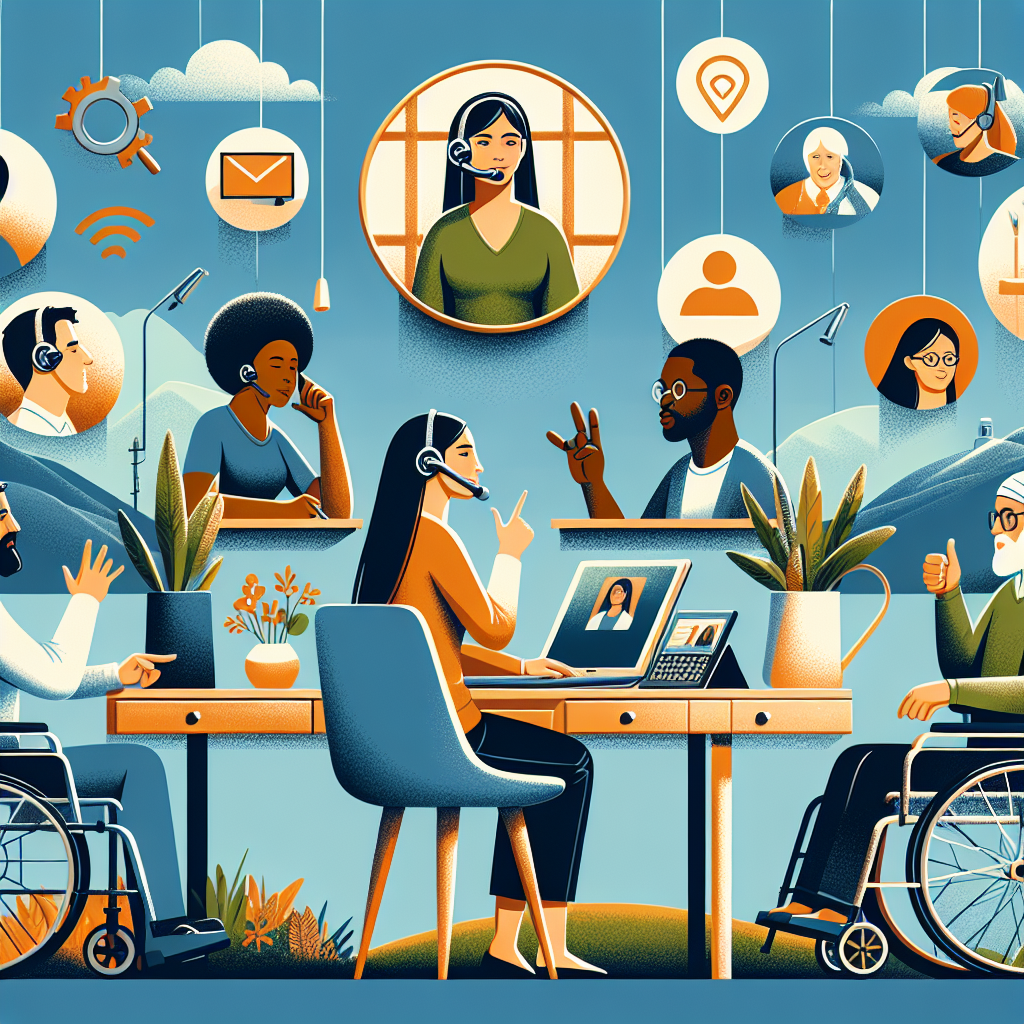Accessibility and Inclusivity in Online Mediation

Expert Mediation Services: Accessible & Inclusive
Introduction
Welcome to our article on accessibility and inclusivity in online mediation. In this piece, we will explore the importance of making mediation services accessible to all individuals, regardless of their abilities or backgrounds. We will also discuss the impact of technology on the accessibility of mediation services and provide tips on how to design an inclusive online mediation platform. Our goal is to promote the use of inclusive practices in online mediation and ensure equal access for all parties involved.
What is Mediation and Why is it Important?
Mediation is a form of dispute resolution that involves a neutral third party facilitating a conversation between two or more parties in conflict. The goal of mediation is to help parties reach a mutually acceptable resolution without going to court. Mediation is important because it allows individuals to take an active role in resolving their conflicts and can often lead to more satisfactory outcomes compared to traditional litigation.
The Benefits of Accessible Mediation Services
When mediation services are accessible, it allows individuals with disabilities or from diverse backgrounds to participate in the process. This not only promotes equal access and inclusion but also leads to better outcomes for all parties involved. By making mediation services accessible, we create a more equitable and fair justice system for all individuals.
Understanding Inclusivity in the Mediation Process
Inclusivity in the mediation process means ensuring that all parties involved have the opportunity to participate and be heard. This includes individuals with disabilities, individuals from diverse cultural or linguistic backgrounds, and individuals with different communication styles. It also means creating a safe and welcoming environment for all participants, regardless of their background or identity.
The Impact of Online Mediation on Accessibility
With the rise of technology, more and more mediation services are moving online. While this has many benefits, such as convenience and cost-effectiveness, it also presents challenges in terms of accessibility. Online mediation can be a barrier for individuals with disabilities who may require accommodations to participate effectively. It can also create barriers for individuals who are not familiar with technology or who do not have access to reliable internet connection or devices.
Breaking Down Barriers: How Technology is Making Mediation More Inclusive
Despite the challenges, technology has also made significant advancements in making mediation more inclusive. For example, there are now online mediation platforms that offer accessibility features, such as closed captioning and screen readers, to accommodate individuals with disabilities. These platforms also have user-friendly interfaces to make it easier for individuals with varying levels of technology proficiency to participate in the process.
Designing an Inclusive Online Mediation Platform
When designing an online mediation platform, it is important to keep inclusivity in mind. This means considering the needs of individuals with disabilities and individuals from diverse backgrounds. Some key features to include in an inclusive online mediation platform may include:
- Accessibility features, such as screen readers and closed captioning
- User-friendly interface with clear instructions and easy navigation
- Language options to accommodate diverse linguistic backgrounds
- Ability to customize font size and color for individuals with visual impairments
- Option for participants to request accommodations or assistance
Ensuring Equal Access for Individuals with Disabilities
To ensure equal access for individuals with disabilities, it is important to follow web accessibility guidelines when designing an online mediation platform. This includes adhering to the Web Content Accessibility Guidelines (WCAG) 2.1, which provides recommendations for making web content accessible to individuals with disabilities. Some key considerations include providing alternative text for images, using color contrast for text and background, and ensuring keyboard accessibility.
Addressing Language and Cultural Diversity in Online Mediation
Language and cultural diversity are important factors to consider in online mediation. It is crucial to have language options available for participants who may not be fluent in the primary language used in the mediation session. This can be achieved through language interpretation services or by providing mediation sessions in multiple languages. Additionally, it is important to educate mediators on cultural differences and how to effectively communicate and mediate with individuals from diverse backgrounds.
The Future of Inclusive Mediation Services
Accessibility and inclusivity in online mediation are crucial for promoting equal access and achieving satisfactory outcomes for all parties involved. By using technology and following accessibility guidelines, we can break down barriers and create a more inclusive justice system. It is our hope that online mediation platforms will continue to improve and prioritize inclusivity, ensuring that all individuals have equal access to justice.



